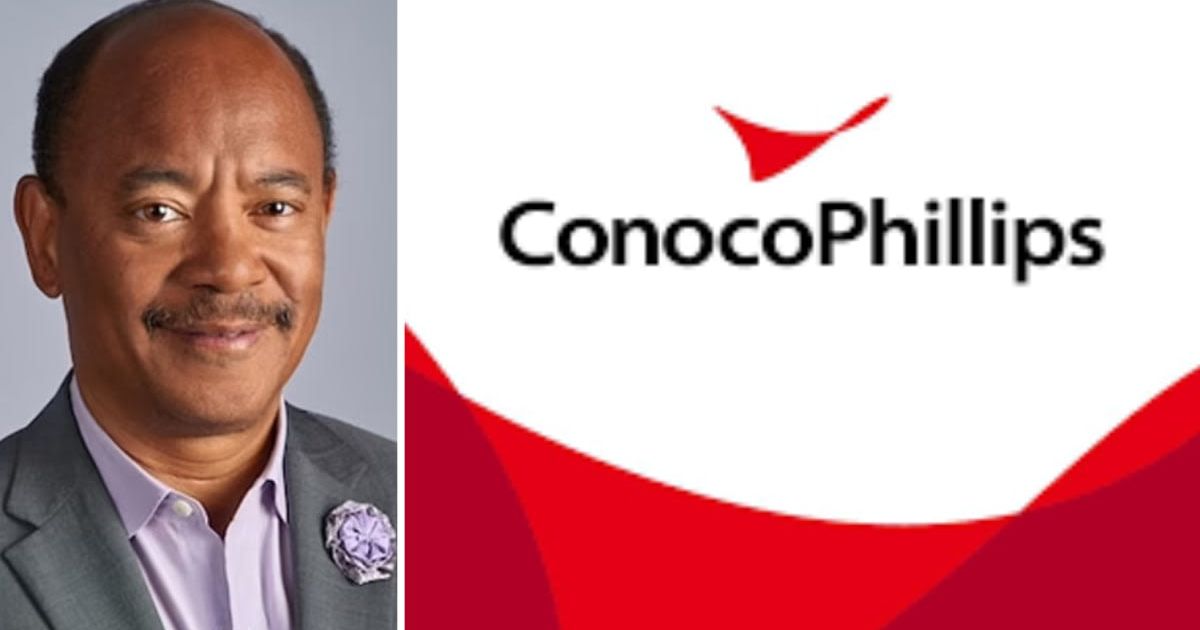
SAN ANTONIO, TEXAS: Kneeland Youngblood, a Black private-equity firm founder, has started a legal battle against multinational oil company ConocoPhillips for allegedly depriving him and his family of the riches from an oil-rich Texas land that his freed slave ancestors purchased.
The 67-year-old Youngblood reportedly filed a $ 900 million lawsuit against the oil firm over the 147.5-acre tract of land in the Eagle Ford shale, which is 60 miles southeast of San Antonio in Karnes County, according to Daily Mail.
Also Read: ZOFF: Redefining American cuisine with authentic Indian spices
The Pharos Capital Group co-founder is battling a White family that claims ownership of the entire land on behalf of the descendants of his enslaved great-great-grandfather in an effort to recover royalties that might be worth millions of dollars.
"This is about legacy," Youngblood told The Wall Street Journal, noting that although a positive resolution to the lawsuit would not alter his own life "it could be transformative for many of my relatives."
Who is Kneeland Youngblood?
Youngblood, who is listed as one of Barack Obama's top bundlers, attended Princeton University and earned his Bachelor of Arts degree in political science in 1978.
After his graduation, he went to the University of Texas, Southwestern Medical School at the University of Texas Southwestern Medical Center, where he earned his master’s degree in 1982
From 1993 to 1999, Youngblood was a trustee on the board of the Teacher Retirement System of Texas and headed the Fund's Real Estate Committee overseeing asset allocation of $1.4 billion.
Also Read: Isla McNabb: Kentucky toddler who learned to read at age 2 becomes youngest female member of Mensa
President Bill Clinton nominated Youngblood for the United States Enrichment Corporation (USEC) board of directors in 1994.
In 1997, he established Pharos Capital Group, LLC, a private equity with Michael Devlin and Robert Crants. The company reportedly manages $1.5 billion.
Kneeland also serves as the Director Emeritus of the US Enrichment Corporation and iStar Financial, a NYSE-traded real estate investment trust (REIT).
Who is the CEO of ConocoPhillips?
ConocoPhillips, which is ranked 156th on the Fortune 500, is headed by Ryan Lance, who became the company’s CEO in May 2012.
The company was originally founded as Continental Oil and Transportation Company (acronym "Conoco") in Ogden, Utah in 1875. However, in 2002, it got merged with Phillips Petroleum Company, whose headquarters were in nearby Bartlesville, Oklahoma, and became ConocoPhillips.
About one-third of the company's US production comes from Alaska, where it operates the Cook Inlet Area, the Alpine oil field off the Colville River, the Kuparuk oil field, and the Prudhoe Bay oil field on the Alaska North Slope.
The company's proven reserves as of December 31, 2019, were 5,262 million barrels of oil equivalent, of which 37% consisted of natural gas, 8% of natural gas liquids, 5% of bitumen, and 50% of petroleum.
ConocoPhillips’s current net worth is $136.75 billion, according to Stock Analysis.
The history of ConocoPhillips’ disputed land
The property issue began in the years following the Civil War, when Louis Eckford, Youngblood's great-great-grandfather acquired the land in Karnes County in 1889 after he and his wife were freed from slavery following the war.
After Eckford’s death in 1896, half of his estate went to his wife Eliza and the other half to their nine children. However, Fritz Korth, a well-known White moneylender on a neighboring ranch, received Eliza's stake in the land after she passed away in exchange for her payback of a $300 debt that she had taken from him.
According to Korth's descendants, he also purchased her children's stock. He purchased the farm in 1939 for $735.50 since none of Eliza's children had made a claim to it following her death.
Consequently, some 200 of the Eckfords' descendants—including Youngblood—have not benefited financially from the land. But since taking over, the Korth family has flourished, and they currently manage the ranch's cattle industry.
In 2008, the Korths were approached by oil companies who wanted to start drilling for crude oil. Soon after ConocoPhillips negotiated leases with some of the Eckford family and obtained leases from the Korths.
The Korth family then argued in court they owned the tract outright. ConocoPhillips sided with them, and some of the Eckford heirs settled with the Korths.
What are Kneeland Youngblood's claims?
The tract of property was initially mentioned to Youngblood's family in 2011 when ConocoPhillips told them they shared ownership of it. Ever since, Youngblood has been attempting to officially establish their rights to shared ownership.
A Texas jury this summer ruled that the Youngblood family did, in fact, co-own the oil-rich land. Youngblood used it as support and motivation to challenge the oil firm for the unpaid royalties that the Black family had been denied.
Now, his family is suing ConocoPhillips to recover $900 million in damages, punitive penalties, and unpaid royalties.
“If it goes to a verdict, I think we can get a lot more. This is about legacy,” Youngblood told WSJ.
“We're not here to relitigate the Civil War. Regardless of the judgment, it's not going to change my life. But for many of my relatives, it could be transformative,” he added.
However, Chico Korth, the great-grandson of Fritz Korth and a managing director of Recurring Capital Partners, asserts that it is their family's land.
“It seems very straightforward that if you pay taxes, and you're operating the land and you have a deed that stipulates that you are the owner of the land, then it's yours,” he told WSJ.
More from MEAWW
First Pets: Furry White House companions through the ages
From shooting survivor to lifesaver: Phoenix cop shot in March now champions blood donations
ncG1vNJzZmillZbEuHrCqKRorJiewG610maYm6elqXqtscaamrJlmaPAqrDEZpmlmZOgeqe1zZqlnKGVp3qsusSeo5qmlGLGsMHNoJmlp5%2BZwG6Fj2lkpmWToa6quYyanpqhnqjBbrvIpWStoaSWu7R5wqilqJufYr2ptculoKmr